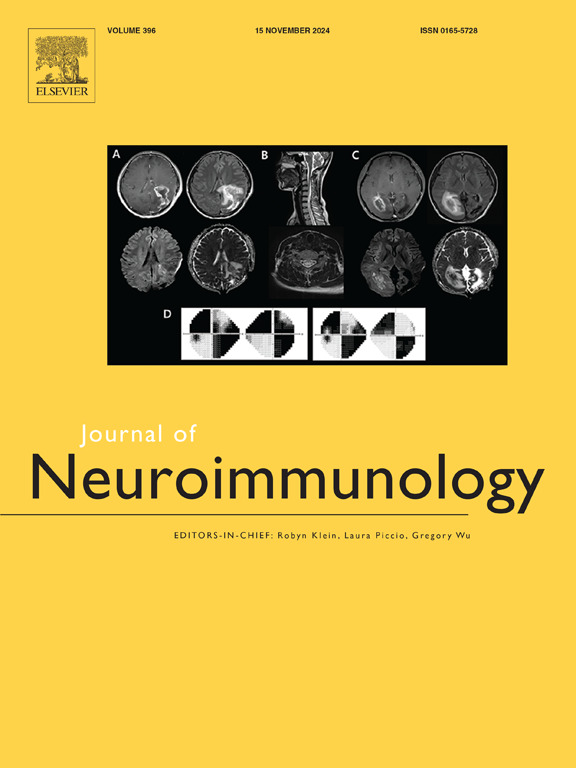代谢物介导的炎症因子与眩晕之间的基因预测联系
IF 2.5
4区 医学
Q3 IMMUNOLOGY
引用次数: 0
摘要
目的探讨炎症因子与眩晕病的因果关系,确定并量化1400种代谢物作为潜在介质的作用。方法利用全基因组关联研究(genome-wide association study, GWAS)汇总数据,对4种眩晕病和1400种由基因预测的炎症因子进行双样本孟德尔随机化(Mendelian randomization, MR)分析。此外,我们使用两步磁共振定量了1400种代谢物介导的炎症因子对眩晕的影响。结果smr分析发现,较高的基因预测炎症因子增加眩晕的风险。炎症因子对眩晕的反向研究表明,基因预测的眩晕对大多数选定的炎症因子没有影响。代谢物介导的基因预测更多地与炎症因子相关,介导效应缺乏强有力的证据支持。综上所述,我们的研究确定了炎症因子与眩晕之间的因果关系,其中血液代谢物和其他代谢物介导的作用所占比例较小,但炎症因子对眩晕的大部分作用尚不清楚。作为潜在中介因素的其他风险因素需要进一步研究。在临床实践中,眩晕患者的血液检测指标值得深入探讨。本文章由计算机程序翻译,如有差异,请以英文原文为准。
Gene prediction link between metabolite-mediated inflammatory factors and vertigo
Objective
To explore the causal relationship between inflammatory factors and vertigo diseases, and to determine and quantify the role of 1400 metabolites as potential mediators.
Methods
Using the summary data of the whole genome association study(genome-wide association study, GWAS), two-sample Mendel randomization(Mendelian randomization, MR)analysis was performed on four vertigo diseases and 1400 inflammatory factors predicted by genes.Furthermore, we used two-step MR to quantify the effects of 1400 metabolite-mediated inflammatory factors on vertigo.
Results
MR analysis identified higher genes predicted inflammatory factors to increase the risk of vertigo. Reverse studies of inflammatory factors on vertigo have shown that gene-predicted vertigo has no effect on most of the selected inflammatory factors. Metabolites-mediated gene predictions are more associated with inflammatory factors, and mediating effects lack strong evidence support.
Conclusion
In summary, our study identified a causal relationship between inflammatory factors and vertigo, where the proportion of effects mediated by blood metabolites and other metabolites is small, but the majority of the effects of inflammatory factors on vertigo remain unclear. Additional risk factors as potential mediating factors require further research. In clinical practice, blood test indicators for patients with vertigo deserve in-depth exploration.
求助全文
通过发布文献求助,成功后即可免费获取论文全文。
去求助
来源期刊

Journal of neuroimmunology
医学-免疫学
CiteScore
6.10
自引率
3.00%
发文量
154
审稿时长
37 days
期刊介绍:
The Journal of Neuroimmunology affords a forum for the publication of works applying immunologic methodology to the furtherance of the neurological sciences. Studies on all branches of the neurosciences, particularly fundamental and applied neurobiology, neurology, neuropathology, neurochemistry, neurovirology, neuroendocrinology, neuromuscular research, neuropharmacology and psychology, which involve either immunologic methodology (e.g. immunocytochemistry) or fundamental immunology (e.g. antibody and lymphocyte assays), are considered for publication.
 求助内容:
求助内容: 应助结果提醒方式:
应助结果提醒方式:


